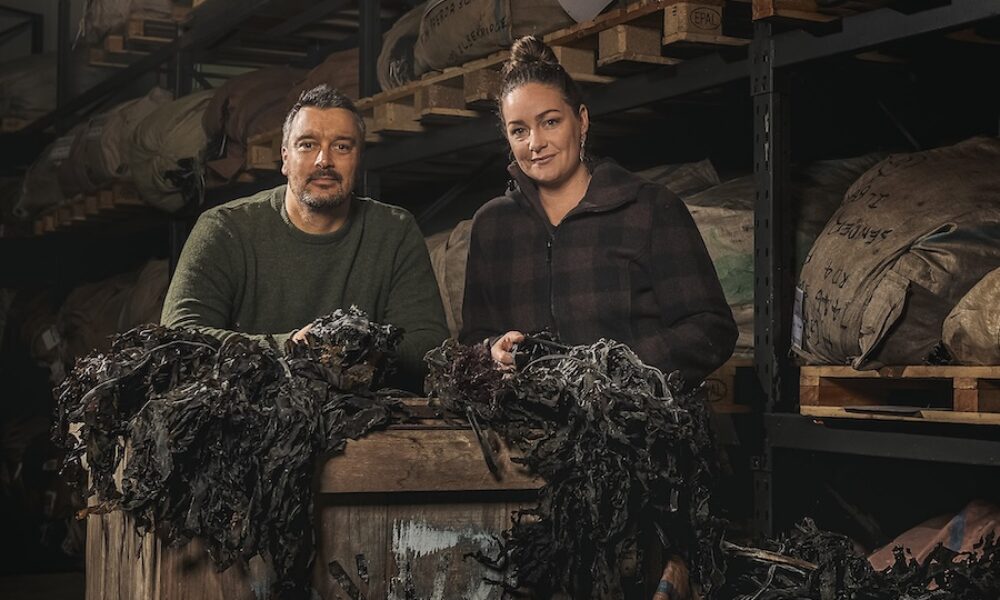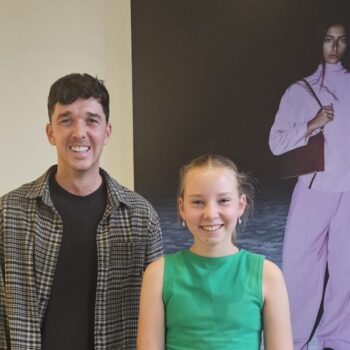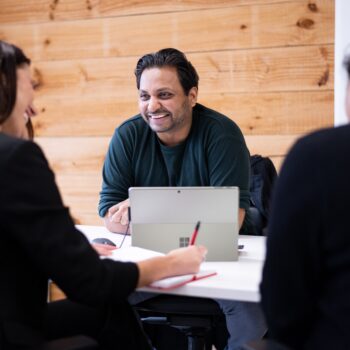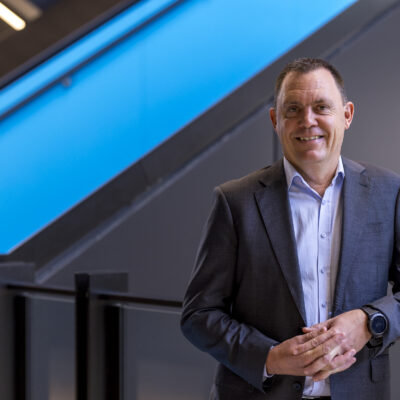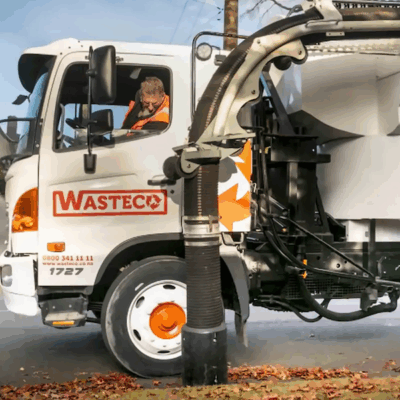New hi-tech seaweed product could make Paeroa world famous
Pictured above: Family owned AgriSea is headed by Tane and Clare Bradley.
AgriSea and Crown Research Institute Scion are launching a seaweed biorefinery near Paeroa to produce sustainable nanocellulose. AgriSea’s Chief Innovation Officer Tane Bradley and Scion’s Dr Stefan Hill share how this pioneering project is set to transform waste seaweed into high-value, eco-friendly materials, with global potential and deep roots in Māori values and partnership.
The world’s first biorefinery for processing seaweed into a versatile polymer will open on the outskirts of Paeroa in August this year.
The venture is a partnership between family-owned seaweed company AgriSea and Crown Research Institute Scion. AgriSea’s Chief Innovation Officer Tane Bradley says the biorefinery is expected to produce up to 1,600 kilograms a week of the polymer known as nanocellulose hydrogel.
Nanocellulose is used in various products, including batteries, adhesives, biomedical supplies, and cosmetics. Its ability to retain large amounts of water is one of several useful properties. While the raw product looks like white playdough, it is lightweight with a tensile strength far greater than steel. Most nanocellulose in the world is produced using wood pulp treated with harsh chemicals.
Scion and AgriSea have been collaborating for more than seven years to develop a way of making nanocellulose from seaweed. The new biorefinery process uses less energy and about 85% less chemicals compared to nanocellulose made from wood pulp. The final product is also expected to be considerably cheaper, says Tane.
“Compared to trees, seaweed grows much faster so you can harvest multiple times during the year without impacting negatively on the environment in any way.”
Initially, nanocellulose production will target the agriculture and cosmetic industries in New Zealand and the USA. Its exceptional water retention properties make it ideal for creating seedling gels to boost plant survival rates in dry conditions. Research shows that a light application of cellulose can extend the shelf life of fruit. It can also protect tree fruit from frost damage.
Tane says there is strong interest in seaweed nanocellulose from other industries and expects the market to diversify.
Paeroa is the home of fizzy drink Lemon & Paeroa which uses the advertising slogan “World famous in New Zealand”. AgriSea wants its nanocellulose product to be world famous, fullstop.
“We want to be able to adapt or take this technology overseas. We’ve already got interest in America and Europe.
“Not only will this technology help grow the New Zealand economy, we’ve also got an opportunity to scale overseas and bring income back into our country.”
He says the company’s goal is to export the intellectual property, not the product.
“If what we produce in New Zealand can satisfy our market, we’d be very pleased. Looking to bigger markets, our aim is to produce in-country or as close to the market as possible.
“This technology allows us to work with other seaweed farmers and companies all across the world to enhance their product offering.”
AgriSea has been operating for almost 30 years, making a range of seaweed-derived products for animal, plant and soil health. The biorefinery will use the waste seaweed from those processes to make cellulose. Research is underway to find ways to extract other high value materials from seaweed, including fucoidan and alginates which are used in the food and medical sectors.
“In nature there’s no such thing as waste. It’s only an input into another process. That’s where we see the future.”
AgriSea embodies the principles of kaitiakitanga, a Māori concept referring to the guardianship of natural resources.
“We aim to ensure that our practices do not deplete marine ecosystems, allowing for the regeneration of seaweed and supporting overall biodiversity.”
AgriSea’s investment in research and development is paving the way for a zero-waste approach that aligns with the circular bioeconomy, says Tane.
Dr Stefan Hill, Scion’s portfolio lead for High Value Biorefineries, says research with AgriSea is an exciting example of developing renewable biobased products to replace traditional petrochemical-based products. The partnership is also developing new materials and providing a path for industry uptake.
“It has been a privilege for Scion to support AgriSea’s mission to create a high-value and sustainable aquaculture industry.
“Their indigenous knowledge, combined with our science excellence, has resulted in a very authentic and world-leading collaboration.”
Tane calls it a “true partnership”.
“We wouldn’t be where we are today without the Scion team’s foresight. We’d walk over hot coals for these guys because they’d do the same for us.”
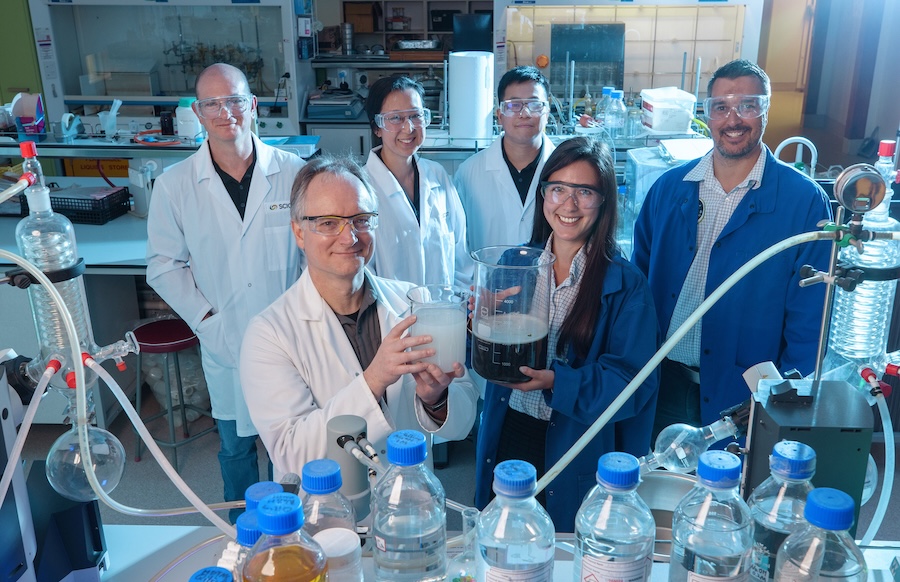
AgriSea uses wild-harvested seaweed that has washed onto beaches around the North Island. Contractors collect the fresh seaweed, dry it and supply it to the company.
While there are more than 1000 types of seaweed in our waters, AgriSea uses just five.
Storms can result in huge volumes of seaweed washing up. However, that same wild weather can also have adverse impacts later on. For example, the cyclones that hit the North Island at the start of 2023 washed huge amounts of sediment off the land and out to sea, smothering large areas of growing seaweed.
“We noticed a massive reduction for about 12 to 16 months while the seaweed beds naturally cleaned themselves, the juveniles grew up again, and it started washing back on shore.”
AgriSea employs 25 people at its Paeroa base, a converted freezing works just over two kilometres out of town. Due to the biorefinery, it expects to increase manufacturing and technical staff over the next few years.
The company was started by Tane’s mother Jill Bradley and her husband Keith Atwood in the 1990s. It is now run by Tane and wife Clare. AgriSea’s collaboration with Scion has won several awards, including the 2021 Science New Zealand Awards, the 2022 KuDos Awards and the 2022 Hi-Tech Māori Company of the Year Award.
AgriSea is part of the Sustainable Business Network (SBN). Its partnership with Scion is included in SBN’s Next 95 list of innovators and visionaries.

